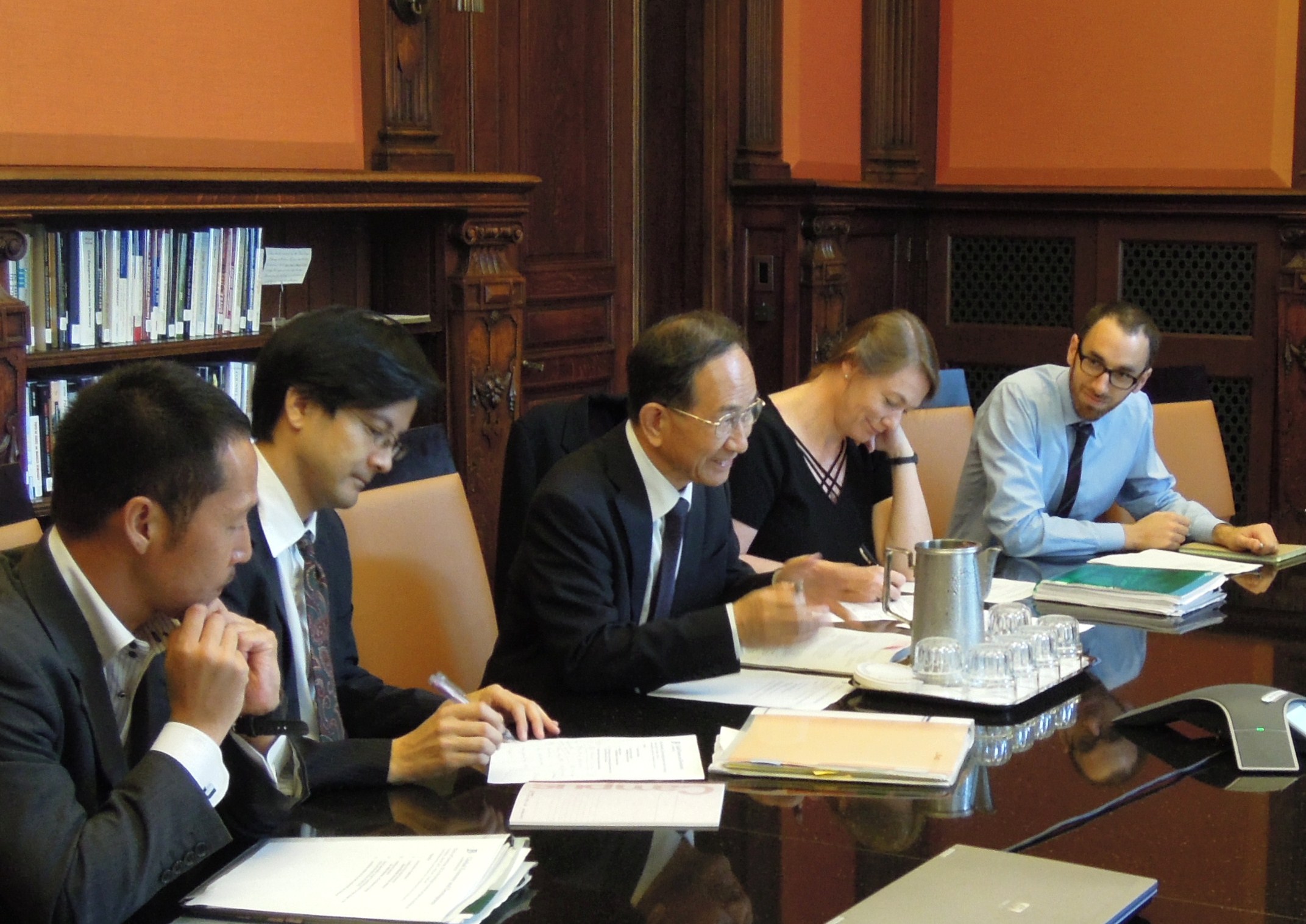JICA-RI and the Brookings Institution Launch Collaborative Research on Scaling Up
2011.09.06
For aid and development professionals, a debate on scaling up is far from rarity. The issue on this topic -- an act of expanding and sustaining successful pilot policies or programs to spread the effect to more people -- has resurfaced more than a few times in the course of many years. And it is attracting a renewed interest among the experts again in the last few years.
This is because the aid community is gradually recognizing that their work has not brought impacts as big as they wished, while the final year of Millennium Development Goals is approaching fast. Still, only limited academic literature on this topic exists despite the fact that numerous good practices of scaling up are available.
At this time, JICA-RI and the Brookings Institution in Washington, D.C. agreed to conduct a joint research on scaling up. This issue was addressed briefly in Catalyzing Development (June 2011), a publication of the outcome of a tripartite project with JICA, the Brookings, and Korea International Cooperation Agency, but in this successive initiative, two institutions focus to “deepen international knowledge” on this topic and “to provide policy-relevant analysis and guidance to development practitioners.” The output will be published in 2012.

Akio Hosono (center) and Shunichiro Honda (second from left)
In this project, leading researchers and practitioners knowledgeable on the theme will work on the diverse sub-themes of “scaling-up,” which will be broadly grouped into three pathways of private sector, public sector and agency reform. The members include: JICA-RI director Akio Hosono, research associate Shunichiro Honda; Homi Kharas and Johannes Linn, both senior fellows at the Brookings; and others. Hosono and Honda will make contributions on South-South/triangular cooperation as approach of trans-border scaling-up and the capacity aspect of scaling-up process respectively.
Experts point out that it is common multiple donors engage in their own pilot projects in the same recipient country or region separately. Without coordination, it could lead to confusion on the recipient side and redundancy of initiatives, and even undermine the effect of each effort. With scaling up in mind, donors and recipients would be able to coordinate with one another better, and plan and carry out a more comprehensive project that is lean and efficient.
At the kickoff meeting at the Brookings on July 28, Hosono said, “It’s essential to investigate how we can achieve scaling up... as we should strive to bring an impact of development more effectively despite the tightening global ODA budget,” noting the timelines of this research when the international aid community is busy preparing agendas on development effectiveness for the next high-level forum in November. He also mentioned its importance for JICA as it sets “scale-up” as one of the key guiding principles for its assistance.
Both parties aim to complete the first drafts by the end of 2011 and will meet once again to review and exchange feedback at a workshop scheduled for early next year.

事業事前評価表(地球規模課題対応国際科学技術協力(SATREPS)).国際協力機構 地球環境部 . 防災第一チーム. 1.案件名.国 名: フィリピン共和国.

事業事前評価表(地球規模課題対応国際科学技術協力(SATREPS)).国際協力機構 地球環境部 . 防災第一チーム. 1.案件名.国 名: フィリピン共和国.

事業事前評価表(地球規模課題対応国際科学技術協力(SATREPS)).国際協力機構 地球環境部 . 防災第一チーム. 1.案件名.国 名: フィリピン共和国.

事業事前評価表(地球規模課題対応国際科学技術協力(SATREPS)).国際協力機構 地球環境部 . 防災第一チーム. 1.案件名.国 名: フィリピン共和国.

事業事前評価表(地球規模課題対応国際科学技術協力(SATREPS)).国際協力機構 地球環境部 . 防災第一チーム. 1.案件名.国 名: フィリピン共和国.
scroll